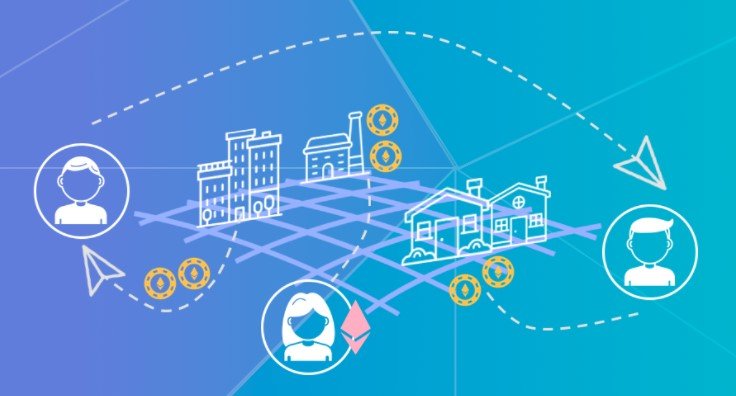
Predictive analytics is transforming industries across the globe, offering powerful tools to analyze data and anticipate future trends. Defined as the process of using historical data, statistical models, and machine learning algorithms to forecast future outcomes, predictive analytics has become a cornerstone of decision-making in dynamic sectors. One of the most significant beneficiaries of this technology is the real estate industry. The rapid pace of change in real estate markets, driven by fluctuating demand, economic conditions, and societal trends, necessitates the use of advanced tools to navigate uncertainty.
In traditional real estate practices, anticipating market trends was often based on intuition, localized knowledge, or static reports. These methods, while valuable, fall short in capturing the complexity and interconnectedness of today’s real estate ecosystem. This is where predictive analytics, enhanced by artificial intelligence (AI), offers a game-changing advantage. By processing vast amounts of data from diverse sources and uncovering patterns invisible to the human eye, AI-powered predictive analytics is shaping how stakeholders understand and act upon market trends.
For investors, realtors, and developers alike, staying ahead in a competitive landscape hinges on adopting tools that provide foresight and precision. Predictive analytics not only enhances decision-making but also reduces risks, identifies opportunities, and delivers a competitive edge. This article delves into the fundamentals, components, applications, benefits, and future developments of predictive analytics in real estate, showcasing how AI is revolutionizing this critical industry.
The Basics of Predictive Analytics
What is Predictive Analytics?
Predictive analytics is the process of analyzing historical data and applying statistical algorithms to forecast future outcomes. It combines techniques such as data mining, machine learning, and artificial intelligence to generate actionable insights. This data-driven approach identifies patterns and trends that inform strategic decisions across industries, including real estate.
Role of AI in Predictive Analytics
Artificial intelligence enhances predictive analytics by automating data processing and improving the accuracy of predictions. Machine learning (ML), a subset of AI, is particularly effective at identifying complex relationships within datasets. For example, ML algorithms can analyze market trends, buyer behavior, and economic indicators to predict property value fluctuations. AI also enables real-time data analysis, ensuring that stakeholders have access to the most current insights.
Key Components of Predictive Analytics in Real Estate
Data Collection and Integration
The foundation of predictive analytics is data. In real estate, data is sourced from a variety of channels, including historical property prices, demographic trends, economic indicators, and even social media sentiment. Integrating these diverse datasets into a unified system allows for comprehensive analysis. AI streamlines this process, ensuring data accuracy and consistency.
AI and Machine Learning Models
Several algorithms are used in real estate predictive analytics, including regression analysis, decision trees, and neural networks. These models analyze patterns in historical data and apply them to current market conditions. Training data plays a crucial role; the more robust and diverse the data, the better the model’s predictive capabilities.
Visualization Tools
Interactive dashboards and predictive heatmaps make it easier for stakeholders to understand complex insights. These tools offer visual representations of market trends, allowing realtors and investors to identify high-growth areas, predict pricing trends, and assess risks effectively.
Applications of Predictive Analytics in Real Estate
- Pricing Trends
Predictive analytics can forecast property values and rental rates with high precision. This helps buyers and investors make informed decisions while allowing sellers to set competitive prices. - Market Demand Analysis
By analyzing buyer preferences and market activity, predictive analytics identifies emerging hotspots and consumer trends. This enables developers to target high-demand areas and tailor their projects accordingly. - Investment Opportunities
AI-driven models can pinpoint undervalued properties or neighborhoods with high growth potential, offering investors a strategic edge in identifying lucrative opportunities. - Risk Assessment
Predictive tools assess potential downturns by analyzing economic indicators and historical data, allowing stakeholders to mitigate risks effectively.
Advantages of Using Predictive Analytics
Improved Decision-Making
By providing data-driven insights, predictive analytics enables better strategic planning for investors, developers, and buyers. Decisions are no longer based on speculation but on concrete, actionable data.
Increased Efficiency
AI accelerates market analysis, reducing the time and resources needed to gather and interpret data. This efficiency benefits stakeholders at all levels, from individual buyers to large-scale developers.
Competitive Edge
In an industry as competitive as real estate, staying ahead requires foresight. Predictive analytics offers a clear advantage by identifying trends and opportunities before they become widely apparent.
Challenges and Limitations
Despite its advantages, predictive analytics faces challenges.
- Data Quality and Availability
Incomplete or biased datasets can compromise the accuracy of predictions. Ensuring high-quality data is critical for reliable outcomes. - Complexity of Real Estate Markets
Real estate is influenced by factors such as human behavior, regulatory changes, and local nuances, which may be difficult for algorithms to fully capture. - Ethical and Privacy Concerns
The use of personal and financial data raises concerns about privacy and compliance. Adhering to regulations and ethical standards is essential for responsible implementation.
Future Trends and Developments
Advancements in AI Technology
Generative AI and deep learning are expected to enhance predictive analytics further. These technologies will improve the accuracy of predictions and enable more sophisticated modeling.
Integration with Other Technologies
The Internet of Things (IoT) and blockchain are poised to complement predictive analytics. For instance, IoT sensors can provide real-time data on property usage, while blockchain ensures secure and transparent data transactions.
Wider Adoption Across Stakeholders
As predictive analytics becomes more accessible, its adoption will expand beyond large corporations to include individual investors, realtors, and smaller developers.
Case Studies
Several companies have successfully implemented predictive analytics in real estate. For instance, Zillow uses AI-driven models to predict property values, while startups like HouseCanary offer predictive tools for market analysis. These case studies highlight the transformative impact of predictive analytics and provide valuable lessons for industry stakeholders.
Conclusion
Predictive analytics, powered by AI, is reshaping the real estate landscape by offering tools to anticipate market trends with unparalleled precision. From forecasting pricing trends to identifying investment opportunities, predictive analytics enables data-driven decision-making that benefits all stakeholders. By addressing challenges like data quality and ethical concerns, the industry can harness the full potential of this transformative technology.
In a world where real estate markets are increasingly dynamic and complex, embracing predictive analytics is not just an option—it is a necessity. Whether you are an investor, developer, or buyer, leveraging AI-driven insights can help you navigate the market with confidence and gain a competitive edge. As advancements in AI and related technologies continue to evolve, the future of predictive analytics in real estate looks brighter than ever. Now is the time to adopt these tools and stay ahead in this fast-paced industry.






